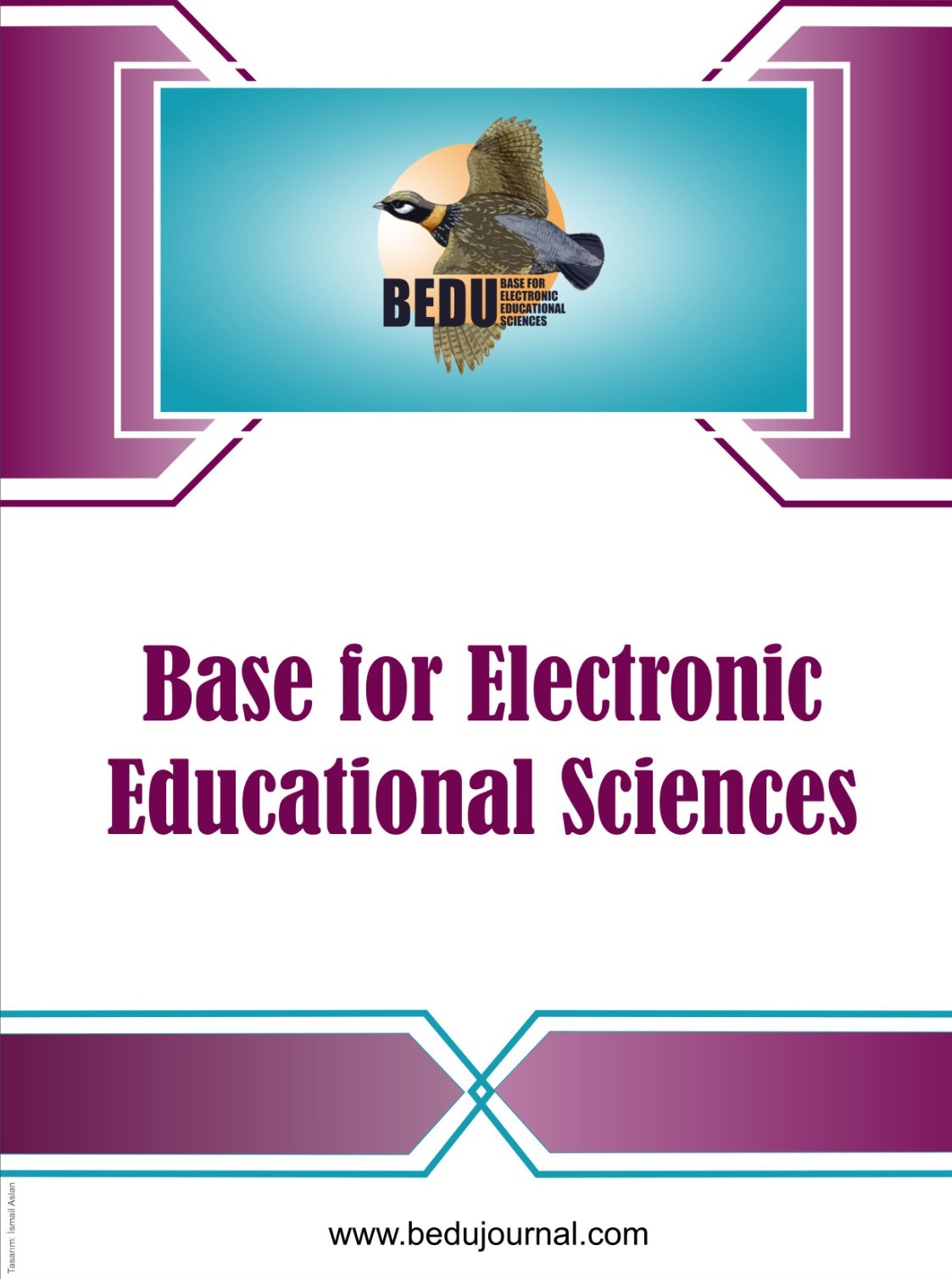Research article | Open Access
Base for Electronic Educational Sciences 2021, Vol. 2(2) 1-10
Investigating the Teachers' Application of Socio-Cognitive Theory to Promote EFL Students' Autonomy Case Study: Third- Year Students in Kasdi Merbah University, Ouargla, Algeria
pp. 1 - 10 | DOI: https://doi.org/10.29329/bedu.2021.381.1
Publish Date: September 30, 2021 | Single/Total View: 113/772 | Single/Total Download: 172/1.776
Abstract
This paper aimed to investigate the teachers' implication of Socio-Cognitive Theory to promote EFL students' autonomy. It was significant in the sense that it attempted at investigating the teachers' implication of Socio-Cognitive Theory in promoting their students' autonomy and indicating the usefulness of Socio-Cognitive Theory in assisting teachers to promote their students' autonomy. The descriptive method was the one used in this research in which a teachers' questionnaire was addressed to both EFL teachers at Ouargla University and EFL third- year students from the same university for data collection. It was found that EFL teachers implemented Socio-Cognitive Theory in their classrooms and were aware of it. In addition, this theory was workable for boosting autonomous learning. But, on the other hand, it was revealed that teachers confirmed their students' disinterest for becoming autonomous. Then, it was recommended to make a good rapport with students to enhance their students' autonomy.
Keywords: Students’ autonomy, self- independence, self-regulation, socio-cognitive theory, teachers
APA 7th edition
Bougherara, R., & Nani, H. (2021). Investigating the Teachers’ Application of Socio-Cognitive Theory to Promote EFL Students’ Autonomy Case Study: Third- Year Students in Kasdi Merbah University, Ouargla, Algeria. Base for Electronic Educational Sciences, 2(2), 1-10. https://doi.org/10.29329/bedu.2021.381.1
Harvard
Bougherara, R. and Nani, H. (2021). Investigating the Teachers’ Application of Socio-Cognitive Theory to Promote EFL Students’ Autonomy Case Study: Third- Year Students in Kasdi Merbah University, Ouargla, Algeria. Base for Electronic Educational Sciences, 2(2), pp. 1-10.
Chicago 16th edition
Bougherara, Rim and Hamza Nani (2021). "Investigating the Teachers’ Application of Socio-Cognitive Theory to Promote EFL Students’ Autonomy Case Study: Third- Year Students in Kasdi Merbah University, Ouargla, Algeria". Base for Electronic Educational Sciences 2 (2):1-10. https://doi.org/10.29329/bedu.2021.381.1
Bandura, A. (1989). Human agency in social cognitive theory. American Psychologist, 44(9), 1175-118
Bandura, A. (1999). Social cognitive theory: An agentic perspective. Asian Journal of Social Psychology, 2(1), 21-41.
Bandura, A. (2006). Toward a psychology of human agency. Perspectives on Psychological Science, 1(2), 164-180.
Bembenutty, H., Hite, M. C., & Lez, M. R. (2015). Developing self- regulation of learning and teaching skills among teachers candidates. USA: Springer
Benson, P. (2013). Teaching and researching autonomy. Oxford shire: England: Routledge.
Blidi, S. (2017). Collaborative learner autonomy: A mode of learner autonomy development. Singapore: Springer Singapore.
Brown, D. (2014). Agency and motivation to achieve language-learning objectives among students in an academic environment in France. Journal of Applied Language Studies 8 (1),101– 126.
Cochran, M., & New, R. S. (2007). O - Z. Westport. Conn.: Praeger.
Cotterall, S. (2000). Promoting learner autonomy through the curriculum: Principles for designing language courses. ELT Journal, 54(2), 109-117.
Feidjel, K. (2013). Developing students’ autonomy strategies in efl classes. Biskra: Biskra University
Hadi, K. (2012). Promoting learner autonomy in an EFL context: Students’ readiness and teachers’ roles (The Case of First Year Pupils in Secondary Education in Algeria). Tlemcen: University of Tlemcen.
Kadi, Z. (2018). The notion in the Algerian EFL classroom: The case of 4th year pupils in Guettaf Mansour Middle School. Sidi Bel Abbas: University of Sidi Bel Abbas
Komlosi-Ferdinand, F. (2019). Emotions, Learning-Autonomy and Gender-specefic Attitudes in the ESL Classroom. WoPaLP, 13, 65-81.
Lipnevich, A. A., Preckel, F., & Roberts, R. D. (Eds.)(2016). Psychosocial skills and school systems inthe 21st century: Theory, research. Switzerland: Springer.
Little D. (2007) Introduction: Reconstructing Learner and Teacher Autonomy in Language Education. In: Barfield A., Brown S.H. (eds) Reconstructing Autonomy in Language Education. Palgrave Macmillan, London. https://doi.org/10.1057/9780230596443_
Murray, G., Gao, X., & Lamb, T. (2011). Identity, Motivation and Autonomy in LanguageLearning. Bristol: Multilingual Matters.
Nakata, Y. (2014). Self-regulation: Why is it important for promoting learner autonomy in the school context? Studies in Self-Access Learning Journal, 5(4), 342-356.
Nelson-Jones, R. (2011). Theory and practice of counselling and therapy. London: SAGE.
Rahimi, M. (2015). Handbook of research on individual differences in computer-assisted language learning. Hershey, PA: Information Science Reference, an imprint of IGI Global.
Sayaram, G.A. (2019). Book review: Autonomy in language learning and teaching: New research Teachers. Studies in Self-Access Learning Journal, 10(4), 401-405
Weiten, W., Dunn, D., & Hammer, E. (2012). Psychology applied to modern life adjustments in the 21st century. USA: Wadsworth.
